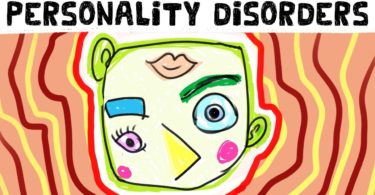INTRODUCTION
The results of the first systematic laboratory investigation of memory were published in 1885 Hermann Ebbinghaus while he was teaching at the university of Berlin . His book on memory was a mile stone in several respects . it showed that one of the higher mental process , memory could be brought into the laboratory and studied quantitively
We remember what we experienced in the past . we remember the skills that we acquired the knowledge that we gathered and the experiences gained .we have traces of attitude and disposition in our mind .we have learned a number of things since our infancy . we recognize millions of objects and things . we recall millions of experiences , which have mystically retained in the small brain . what then is this memory ? how is different from thinking ?
In words of Ross the term memory , in the strict sense is narrower than the term mneme it is mneme risen to the level of apprehension . Every child at birth sucks breasts , in the unconscious effort of , seeking food , which he has conserved from the whole race . such an act is conserved but not apprehended . but our daisy actions or experiences are apprehended . Ross there fore defines ;
A memory is a new experience determined by his disposition laid down by a previous experience , the relation between the two being clearly apprehended , mneme is memory not come to the level of apprehension . recognition is the first manifestation of mneme and in it we have explicit reference to the past .it implies all apprehension of the relation between present and past experiences , secondly , the disposition that can be recognized may be so stroll , that these can be recalled to will
MECHANISM OF THE PROCESS OF MEMORISATION
Ross defines , memory then is a complex process involving the establishment of dispositions , their retention and the recalling of the experiences that left file dispositions behind them
Wood worth considers remembering as the proper word , a verb substituting the noun – memory . Rememboring , according to him is direct use of what has been learned while thinking is all indirect use Savery and Telford mention hold over effects of experience for which we use the tem memory . according to them , learning refers to modifications resulting from experience , and memory has reference to the persistence of these modifications . So they use the word permanence of learning in place of memory as has been used by Ralph W.Tailor according to klausmerier , what we call memory is a number of distinct activities such as retention .reocgnition and recall .
Whatever be the explanation of psychologigists , there is no need to give any formal definition of memory . We all know what memory is to us memory consists of the recollection of previous experiences , it has a number factors –leaning , retention , recognition and recall
TYPES OF MEMORY
1] immediate memory and permanent memory ; pupils often study intensively just before the examination and they are able to recall most of what they have learnt . this is a case of immediate memory . but they hardly remember more than 25percent six months after the examination . what ever they learned has no permanent value
2] personal impersonal memory ; memory of experiences that we have gathered ourselves is personal . but all these experiences which are with out any reference to our own self are impersonal . most of the ideas we gather from others or from the printed page , and that way our memory images are mostly impersonal . but personal memory .being strong and vivid is more permanent and dependable
3] active and passive memory; Active memory is related to as deliberate attempt on our part to remember , retain and recall certain experiences we entertain passively , as these comes to our conscoussness with out any effort while preparing for the examination . but most of the experiences we entertain passively , as these comes to our consciossness without any effort on our part . this constitutes passive memory
4] visual memory etc ; on the basis of sense perception we have 5 types –visual, auditory , olfactory , tactual and gustive –of memory images . here in it may be remembered that most of our images are visual and auditory memory . but some have a stronger visual memory . some pupils after reading a book , can recall the exact page , the underlining and illustrations , relying upon the vivid visual impression . some pupils can recall exactly when they have listen too .
5] habit memory and true memory ; Bergson makes the distinction clear by saying that habit is a function of the body , while memory is the function of the mind . habit memory is related to motor mechanism and true memory to independent recollection
FACTORS OF MEMORY; 1] learning 2] retention ] 3] recognition 4] recall
1] learning ; is the first activity . it is the acquisition of new experience , formation of an engram disposition in the mind or modification of the mental structure
2] retention ; is the persistence of the disposition or engram , the sustenance of the new experience and its continuance for a sufficient period of time . we meet a new person and talk to him . we have a new experience , and thisi we have learned . we retain the experience for some time
3] recognition ; is the awareness of the experience that has been retained or stored up in mind . it consists in knowing an object that has been experienced in being acquinted withit . we meet the person again and we recognize him to be the same person we meet us before .





